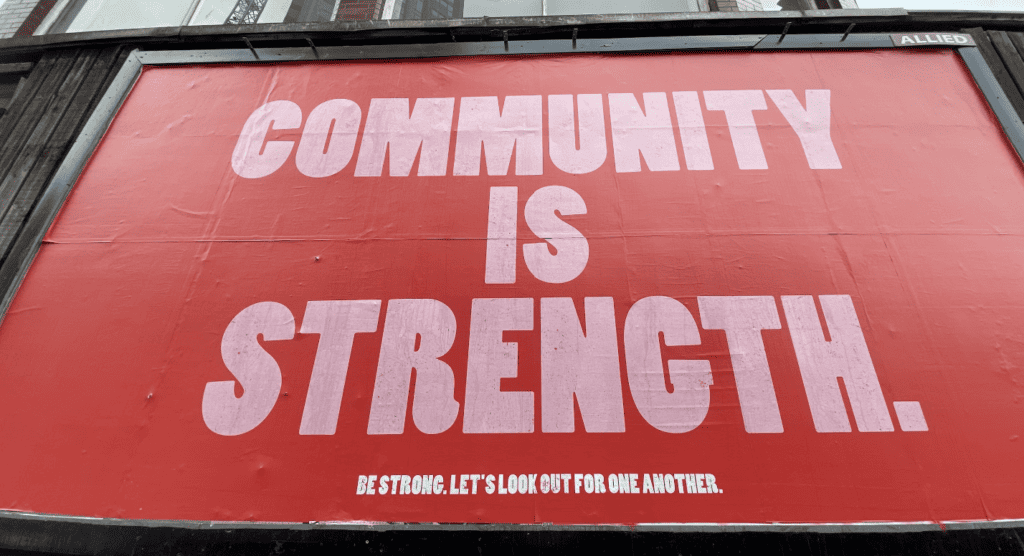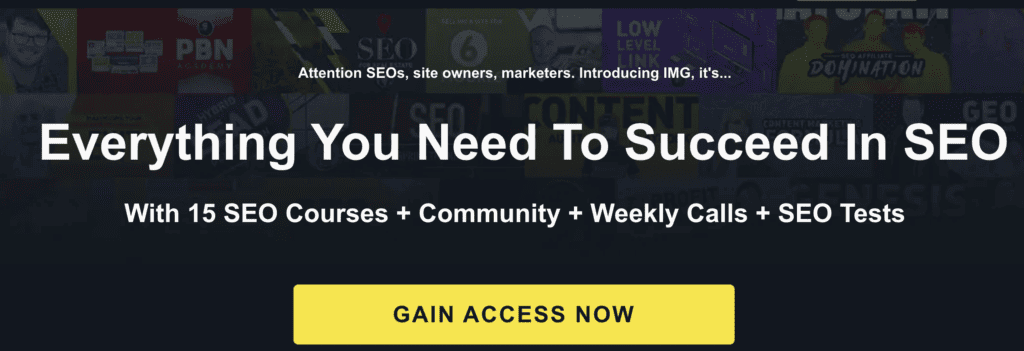To a lot of older business owners, SEO or Search Engine Optimisation is an alien term since its really in the last decade that this practice has picked up. Unfortunately, many of them don’t fully understand the benefits that SEO can have on their business growth and profitability.
SEO is an integral part of any digital marketing plan that a small business aspires to develop and implement.
Most of the potential customers today, both in business to business and in business to consumer type of businesses, are present online and any company that gets discovered online through search has a chance of dominating that audience.
Companies that invest in SEO have a huge advantage over those that don’t going forward. These businesses tend to gain a competitive edge over those businesses that don’t invest in SEO and the latter will get left behind in the online shift that we are experiencing today.
What should SEO mean for a small business?

Search engine optimisation or SEO for a small business is essentially a set of ‘best practices’ that a small business should adopt to stand a good chance of being discovered for any term or phrase that is related to their business or product when searched on google.
What this means is, if potential customers are googling or searching for solutions to a problem they have, if your business comes up in the search results, you become a part of their options as potential solves. Once you start appearing frequently enough to be visible to a sizeable set of people who are searching, you will see some people actually reach out and convert to become your customers.
In today’s digital age, getting discovered online and having a ‘pull’ effect from your potential customers is the most efficient way to grow your business.
As a small business owner, you need to understand some of the basics elements of SEO (search engine optimisation) so that we can proceed ahead.
- Keywords or Key Phrases: These are the terms and phrases that users type into search engines. It’s important to select keywords that are relevant to your content and can rank for your website.
- Content Quality: High-quality, relevant, and informative content is crucial. Search engines algorithms like content that is valuable to users, well-written, and updated regularly.
- On-Page SEO: This is basically optimizing individual web pages to rank higher and earn more search traffic. Small businesses need to ensure that their website is structured in a way that search engines can easily crawl and understand.
- Off-Page SEO: This involves actions taken outside of your own website to impact your rankings within search engine results pages. This mainly involves building links that come from other reputed websites to your website like a citation (exactly how scientific papers are cited, the more the paper is cited; the more authoritative it is considered to be).
- Technical SEO: This refers to website optimizations that help search engine codes and scripts read and index your site more effectively. Aspects like website load speed, mobile-friendliness, and structure play a role.
- User Experience (UX): A good user experience is important for SEO. This includes website design, navigation, and loading times. A site that is easy to navigate and enjoyable to use is likely to keep visitors longer (called user engagement), and if a visitor stays longer on the website, it generally ranks better.
- Local SEO: For businesses that operate in specific geographical areas, local SEO helps ensure visibility in local search results. This includes optimizing for local keywords, having a Google My Business listing, and managing local business citations.
- Analytics and Monitoring: Regular monitoring of your SEO strategy’s effectiveness using tools like Google Analytics is essential. This includes tracking rankings, website traffic, and understanding how users interact with your site
The above points cover what is essential to understand for a business owner about SEO. The next section is typically how much it costs to do good SEO for a business.
How much should a small business pay for SEO?

The moment a small business owner searches for SEO on google, they are bombarded with results for SEO tools and SEO agencies who offer their services to optimise a business website. It is crucial to know what is the right price to pay for a business website as a small business owner.
In general, a small business owner in America, spends about $500 per month on SEO services as an average. These services typically include setting up a website, on-page SEO and a little bit of off-page SEO.
As a business owner, you need to know what to expect from an SEO agency as well. An SEO agency is not a marketing agency. They are not supposed to build you a brand or a marketing campaign or get you followers on social media.
Marketing plans, marketing campaigns and social media campaigns are implemented by marketing agencies that are different from an SEO services agency. Infact, there are many companies that specialise in offering only social media services as well.
A good SEO agency is supposed to do the following for your small business.
- Set up a clean, fast website for you that works well (not the design part, but the technical and functional part)
- Research the keywords and phrases that your business should use as a part of its content plan
- Give you a content plan laid out for the next 3 months for you to work on (some SEO agencies also take care of writing the content, but it will cost you extra)
- Help you make sure that your pages are read (crawled) and indexed by google
- Set up analytics tools such as search console and google analytics for your website
- Help drive organic search traffic for your business
These are the basics that any SEO agency should do for a small business. They are expected to do these with transparently laid out criteria like what inpust will yield certain outcomes. You as a business owner should measure the performance of the agency against these three important criteria.
- Organic Search traffic (visits on your website, measured also as ‘clicks’)
- Impressions (must increase consistently)
- Click through rate (can fluctuate initially, but to be stable)
- Number of unique search terms that your website starts ranking for (more the better)
You will also have to ask the agency to commit to the inputs that will drive desirable outcomes for you. Look for agencies who will transparently share with you how they work, their metrics, their internal reviews and how they will communicate with you on what works and what does not work
How SEO brings in more customers through organic search for small businesses?

Investing in SEO as a small business will get you more targeted traffic organically through search for your website. Look for all terms and phrases that are related to your business and product. These keywords are the most important elements of search that potential customers do.
The primary goal for any small business is to get their business discovered through what customers are searching for. SEO is a scientific and structured way to go to where the customers are. You as a business, are competing with other companies to gain the top spot to be seen in front of customers.
Look at SEO as a competition, the one who is the best will always come up number one, the one who is just behind comes up as number two and so on. The good news is, to become number one in SEO, there are simple repeatable things that you need to do as a business. Do it for long enough and you will eventually find yourself as the number one for many of the desired phrases on google search.
The way in which SEO works is as follows

- Higher Visibility in Search Results: By targeting relevant keywords and phrases, your website becomes more likely to appear in the top results when potential customers search for those terms. Since users often click on the first few results (75% of users visit the first 5 results on a google search), being at the top increases the likelihood of your site being visited.
- Increased Credibility and Trust: Results that appear higher in search engine results are often perceived to be more trustworthy. This perception is important for new or less-known brands or businesses. This perception is because these brands are shown organically via search to the user and not because the brand is promoting itself.
- Targeted Traffic: SEO allows you to target audiences through specific keywords. This means that the traffic coming to your site from search engines is more likely to be interested in your products or services. For instance, someone searching for “best pellet grill” is likely interested in buying pellet grills or grilling equipment, and if your business sells them and appears in the search results, that’s highly targeted traffic where users also have intent to buy.
- Improved User Experience: Part of SEO involves optimizing the user experience on your website. This includes making your site faster, easier to navigate and mobile-friendly. A good user experience can help keep visitors on your site longer, increasing the chances of them becoming customers.
- Local Search Optimization: For local businesses, local SEO strategies help attract customers in the same geographic area. By optimizing for local keywords and listing your business in local directories and Google My Business, you can attract local traffic.
- Cost-Effective Marketing: Unlike paid advertising, the traffic generated from organic search is free. SEO however requires an initial investment in terms of time and may be money if you hire content writers. It is generally much more efficient in the long term compared to pay-per-click (PPC) advertising. Once you rank well for certain keywords, you don’t have to pay for every visitor whne SEO is done well.
- Long-Term Benefits: While SEO takes time (more than 6-8 months) and effort to start showing results, it can provide long-term benefits. Once your website achieves a high ranking, it can maintain that position for an extended period, bringing in steady organic traffic without the ongoing costs associated with paid advertising.
- Brand Awareness: Even if a search does not result in an immediate click or sale, high visibility in search results can increase brand awareness. The more often people see your site in their searches, the more they recognize and remember your brand.
All these factors work together to create a positive re-inforcing spiral that works together to improve visibility of your business over time. The best part is that you do not have make significant investments in future. You just have to incrementally add and see the benefits trickle in.
So the biggest takeway from this section is that
“SEO helps and brings organic search traffic to your website”
How can a company take advantage of local SEO? Do local businesses need SEO?

For small businesses who are targeting customers in the same geographic area, local seo is a cost-effective marketing strategy. Local small businesses who work to optimise for local SEO stand to gain much more in the business than those who do not do much for local SEO.
Here are a few ways in which small businesses can take advantage of local SEO.
- Get a google ‘my business’ listing – Claim your business listing on google maps, put in yoru keywords and make sure all information on it is correct
- Use localised keywords for your business or product – If you offer pest control services in manhattan, use the terms “manhattan” and “pest control” together in your content
- Make content specific to your location – use relevant local landmarks or places of interest to get started and get as local as possible
- Get local reviews for your business listing on google – the more the reviews and better the rating, it signifies more credibility for your business
- Get local backlinks – Do a local link building exercise with local news publications and other local websites to give your website a link
- Name, Address, Phone number clean up – ensure that your contact details and credentials across all listings such as directories are cleaned up and are consistent
- Use social media to engage with the local community
Once you do the above consistently, you will your business gain a disproportionate share of local traffic organically which will help your business grow.
Small Business SEO techniques that help improve your reach

There are some techniques, which belong to the category of technical SEO, when implemented will take all SEO initiatives that a small business does to the next level. These technical SEO techniques will improve the way engines can read your content and will enable them to give you the rank that you deserve much faster.
- Use of Header tags – When you write the content, use the correct tags for headings, sub-headings and paragraph texts to make sure the search engine can read the content correctly
- Build internal links – link related content on your website with each other through links in the body of the content, this shows search engines that all content is related which helps build authority
- Build back links – Link building as its called in the industry is when other websites link to you which passes some of their authority to yours, make sure to stay within google guidelines for this one
- Use structured data (schema) – Its called Schema and its an organise way of representing information like who owns the site, the company information, the author information in a manner that is standardised and easy to read by search engines
All of the 4 techniques i have mentioned above are technical in nature, you as a business owner should be aware of these so that you can ask the agency who is implementing it the right questions.
SEO Benefits that help a company to cut costs

The main benefit for a small business in doing SEO is that over time, the benefits of SEO accrue and the cost of acquiring traffic goes down. This means that cost of acquiring leads go down. I have written in detail about the process that can be used by small businesses to generate leads for free.
With an increase in organic traffic, there is lesser reliance on paid channels by companies to generate leads. You will end up spending much lesser on other forms of advertising once organic starts kicking in.
Other benefits of SEO for small businesses
Many of the benefits of SEO that small businesses derive from SEO are related to efficiency, RoI and cost effectiveness in driving business growth. To Spell out the key benefits for small businesses, SEO helps in the following
- Increasing web traffic
- Targeting the right audience with intent
- Building credibility and trust
- Giving your business a competitive advantage over time
- Improving conversion rates for your business
- Insights into consumer behaviour
The benefits of SEO go much beyond all these, but hopefully, these would be sufficient to nudge you to learn more about SEO.
Advantages of SEO in digital marketing
SEO is the backbone of any digital marketing plan. Look at this article that details out how a small business can develop a digital marketing plan to learn more about how SEO fits in to the overall strategy.
Why small business owners should learn SEO? What is a good source to learn SEO?

Small business owners need the knowledge of SEO as an essential tool in their toolkit. In todays business environment, those who adopt a digital first approach have an advantage and even help businesses to dominate their industry.
SEO is an essential element of any digital marketing initiative. Small business owners would do well to spend some time to learn about SEO from experts who teach everything in a transparent manner. I will recommend Internet Marketing Gold as the one stop shop for anything related to SEO techniques that you want to learn.
